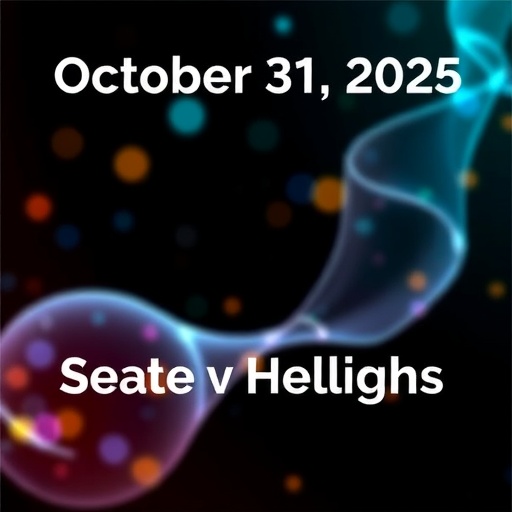In recent groundbreaking research conducted at Memorial Sloan Kettering Cancer Center (MSK), scientists have made significant strides in elucidating the complex interplay between genetic ancestry and cancer biology, specifically focusing on populations of non-European descent. This work not only reveals novel genetic signatures that may underlie disparities in cancer incidence and treatment efficacy but also spotlights critical social determinants of health, such as socioeconomic adversity, as tangible contributors to cancer outcomes. Complementing these findings, parallel studies have introduced innovative technological tools enhancing post-treatment survivorship care and have demonstrated the promising augmentation of immunotherapy regimens for refractory lymphomas.
The complete panorama of cancer genomics is often obscured by underrepresentation of diverse ancestral backgrounds in sequencing datasets. Addressing this gap, MSK investigators analyzed tumor genetic data drawn from over 275,000 patients across 14 cancer types, employing comprehensive genomic platforms including MSK-IMPACT® and FoundationOne. By categorizing individuals according to detailed genetic ancestry—African, admixed American, East Asian, European, or South Asian—the study identified 447 gene signatures spanning 116 unique genes associated with cancer pathogenesis. Particularly notable were findings of reduced driver mutations in renal cell carcinoma among those of African descent and diminished alterations in lung squamous cell carcinoma and glioblastoma in patients of East Asian ancestry. These ancestry-specific genomic discrepancies underscore the imperative for broadening the inclusivity of genetic datasets to optimize precision oncology strategies globally.
Parallel to genomic variations, socioeconomic context emerged as a potent modifier of cancer risk, particularly for triple-negative breast cancer (TNBC), a biologically aggressive subtype disproportionately affecting Black women. Utilizing the comprehensive Yost Index—which integrates multifaceted indicators such as median income, house value, educational attainment, and unemployment rates—researchers correlated adverse neighborhood-level socioeconomic environments with elevated TNBC incidence rates. This association implies that the stressors embedded within social adversity may influence oncogenic pathways, potentially via epigenetic remodeling or gene expression modulation linked to ancestral susceptibility. Such insights pioneer pathways toward modifiable intervention points that transcend traditional biomedical paradigms.
The technological landscape of oncology survivorship care is also witnessing innovation through the development of HN-STAR, a web-based survivorship tool tailored for individuals recovering from head and neck cancers. Given the high prevalence of chronic debilitating effects post-treatment—including dysphagia, speech impediments, and sensory deficits—systematic reporting and management of patient concerns have been suboptimal. A national multicenter trial evaluating HN-STAR demonstrated that the tool significantly increased the proportion of symptom-related concerns addressed during clinical consultations. This enhancement not only augments patient-clinician communication but also propels patient-centered care by integrating digital health frameworks directly into routine follow-ups, mitigating the burden of underreported long-term sequelae.
In the therapeutic frontier, MSK’s phase 1b/2 clinical trial has generated encouraging results by incorporating epcoritamab, a bispecific antibody designed to orchestrate potent immune-mediated cytotoxicity, into the standard regimen of rituximab and lenalidomide for relapsed follicular lymphoma. The mechanism of epcoritamab involves dual binding to CD3 on T cells and CD20 on malignant B cells, thereby facilitating efficient immune synapse formation and targeted killing. With an impressive overall response rate nearing 100% and complete remission achieved in 90% of participants, this combinatorial approach also exhibited a durable remission rate of 75% at two years post-treatment. Safety profiles were manageable, with no treatment discontinuations due to adverse events, marking a substantial advancement in combating refractory indolent lymphomas.
The cumulative evidence from these diverse investigations highlights a multifaceted view of cancer etiology and treatment that spans molecular genetics, social determinants, patient-reported outcomes, and immunotherapeutic innovation. By integrating high-resolution genomic profiling with robust social epidemiology metrics, researchers are unveiling the complex biology of tumors in underrepresented populations, which may inform tailored therapeutic avenues and equitable healthcare delivery. Moreover, digital tools like HN-STAR signify a transformative shift in survivorship care paradigms, ensuring that the clinical management of cancer extends beyond tumor eradication to holistic quality-of-life improvements. The success of epcoritamab-enhanced regimens exemplifies the frontier potential of immuno-oncology, offering renewed hope for patients confronting difficult-to-treat malignancies.
These findings collectively reflect MSK’s commitment to advancing cancer research that is both scientifically rigorous and socially pertinent. The integration of genetic ancestry into oncologic research addresses intrinsic biological diversity, which has been historically overlooked due to Eurocentric biases in genomic databases. Furthermore, the elucidation of how social adversities intertwine with genetic susceptibility underscores the necessity for interdisciplinary strategies combining biology, public health, and social policy to mitigate cancer disparities.
The impact of these discoveries resonates profoundly in the broader oncology community, where personalized medicine continues evolving from a concept centered narrowly on tumor genetics to one encompassing the full spectrum of patient diversity—including genetic background, environmental exposures, and lived experience. The translations of these insights into clinical practice promise to refine risk stratification, optimize therapeutic selections, and strengthen survivorship care frameworks, ultimately improving patient survival and well-being worldwide.
Subject of Research: Cancer genomics and health disparities, social determinants of cancer risk, survivorship care technology, and immunotherapy for follicular lymphoma.
Article Title: Unique Genetic Signatures and Socioeconomic Factors Drive Cancer Disparities: Innovations in Survivorship Care and Immunotherapy at Memorial Sloan Kettering Cancer Center
News Publication Date: 2024
Web References:
MSK-IMPACT®
Nature Genetics Article
JAMA Network Open Article
JCO Oncology Practice Article
Blood Journal Article
Image Credits: Memorial Sloan Kettering Cancer Center
Keywords: Cancer research, Health disparity, Breast cancer, Head and neck cancer, Lymphoma
Tags: comprehensive cancer treatment innovationsdisparities in cancer incidencediverse ancestral backgrounds in cancer studiesgene signatures in cancer pathogenesisgenetic ancestry and cancer biologyimmunotherapy for refractory lymphomasMSK cancer research breakthroughsMSK-IMPACT genomic platformsocial determinants of health in cancertechnological tools for cancer survivorshiptumor genetic data analysisunderrepresentation in cancer genomics





